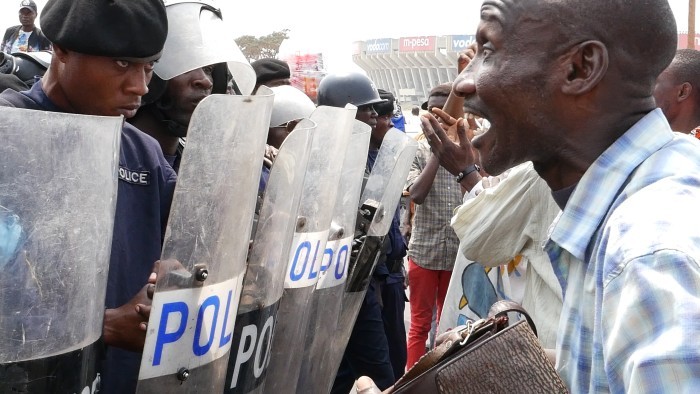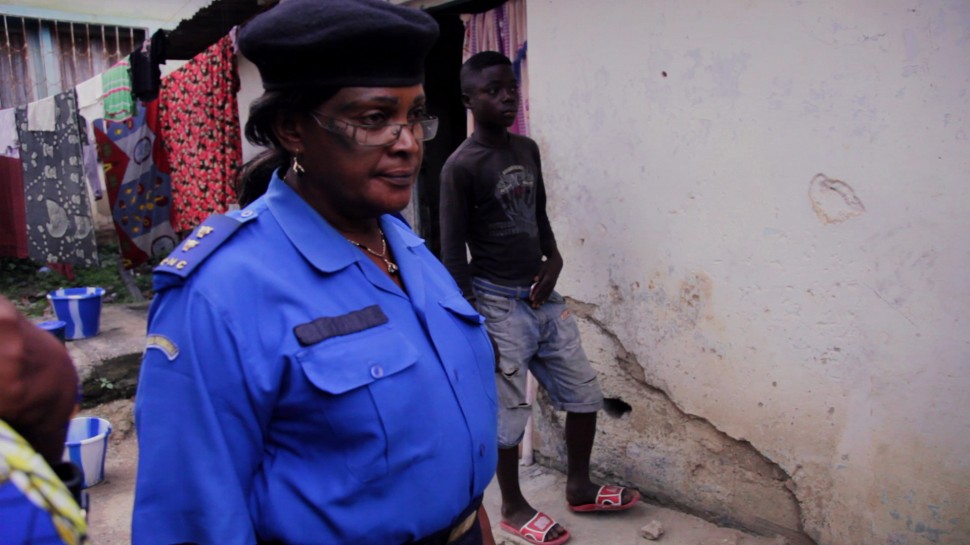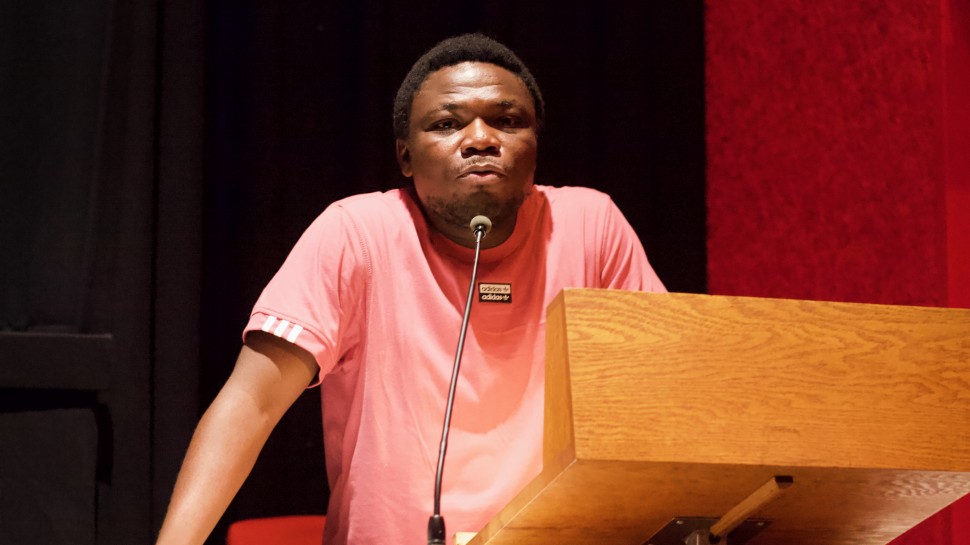



The McMillan-Stewart Fellowship: Dieudo Hamadi
Over the past ten years, Dieudo Hamadi has emerged as one of the most prominent figures in contemporary documentary cinema. His work bears witness to living conditions in the large African country where he was born, the Democratic Republic of Congo, and, to a certain extent, to situations that occur in many other forms throughout much of Sub-Saharan Africa. Born in Kisangani (DRC) on February 22, 1984, Dieudonné Hamadi studied multiple audiovisual disciplines and began his career as a director for music videos and commercials. He has worked for Suka! Production, the production company of director Djo Munga, whom he assisted on the gangster film Viva Riva! (2010). He has also pursued training in documentary film, in particular under a structure established by INSAS (the prestigious national film school of Brussels) and at La Fémis (its Parisian equivalent).
Dieudo Hamadi made his debut as a documentary director in 2009 with contributions to a collective project initiated by a South African company but devoted to representing different aspects of Congolese society, Congo en 4 actes. Hamadi directed two of the four parts, Dames en attente (see below) and Tolérance zéro, on the widespread practice of rape, both as a weapon of conflict and within everyday relationships marked by sexist violence. He thus began a documentary practice at the most intimate level of human relation, including its darkest facets, often choosing one or two individuals as reference points for his subject matter. A skilled cameraman and editor, he often works alone, which allows him an unusual proximity with the people that he films. He has taken an interest in various social subjects: the healthcare system (Dames en attente), the electoral process (Atalaku), the educational system (Examen d’Etat), sexual violence and child abuse (Maman Colonel), civil society’s attempts to make itself heard within an ultra-repressive context (Kinshasa Makambo) or, in his new film, En route pour le milliard, the aftermath of the multiple armed conflicts that have ravaged his country. In each case, his approach—attention to everyday details and bodies, close observation that remains free of any domineering or a priori view—provides access to the complexity of situations that are at once specific and indicative of a much broader whole. Above all, Hamadi’s films stand out among other documentaries on the functioning of institutions for their singular filming style; he taps into the energy of his protagonists, and the intensity—positive or negative—of their relationships electrifies the shoot, thereby opening up another level beyond that of factual description. In successive flashes of insight, the films of Dieudo Hamadi thus elaborate the impressive, at times disturbing portrait of a society where violence, extreme poverty and corruption reign, where recourse to the supernatural—whether in the innumerable Christian churches with their highly creative mysticism, in consultations with shamans and healers, or through omnipresent reference to sorcery—serves to distract from the countless difficulties of existence. An unflinching look at the multiple negative aspects of Congolese society, Hamadi’s films also attest to the engagement and courage of many people within that society, especially among women and younger populations. – Jean-Michel Frodon
The Film Study Center, the McMillan-Stewart Foundation and the Harvard Film Archive are thrilled to welcome Dieudo Hamadi, this year’s winner of the Geneviève McMillan – Reba Stewart Fellowship in Distinguished Filmmaking.












